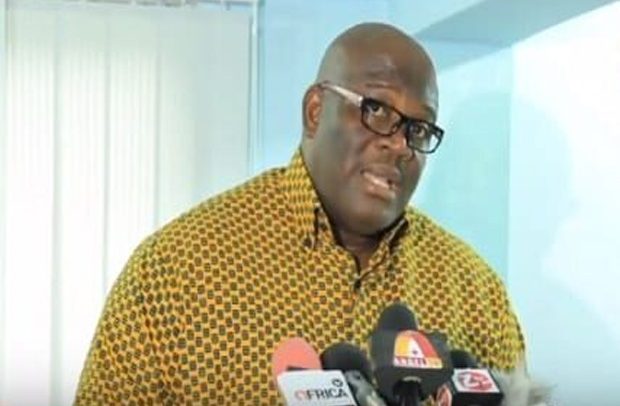Henry Quartey
The Minister for the Interior, Henry Quartey, has vehemently refuted claims leveled by the Minority in Parliament accusing the government of clandestinely enlisting members of the New Patriotic Party (NPP) into the security services ahead of the upcoming 2024 general elections.
The allegations, which suggest that NPP Parliamentary Candidates have been allocated recruitment slots within the security services to influence political outcomes, were categorically dismissed by Mr. Quartey in a bid to dispel any misconceptions.
Speaking in response to these accusations during an interview with Umaru Sanda Amadu on Citi FM’s Eyewitness News, Mr. Quartey echoed his disappointment over the dissemination of what he described as “falsehood” by the Minority Leader, Cassiel Ato Forson.
He clarified that recruitment processes have not yet commenced and affirmed that the government has no involvement in any covert enlistment practices aimed at favoring political affiliates.
Emphasizing transparency and adherence to due processes, Mr. Quartey emphasized that recruitment initiatives will be carried out openly and in accordance with established eligibility criteria set forth by the relevant agencies. Debunking assertions of preferential treatment for NPP members, he highlighted the government’s commitment to addressing the backlog of recruits from previous years, thereby negating the necessity for public advertisements.
In further discrediting the claims of undue influence in recruitment, the Minister reiterated that the selection of candidates for security and intelligence agencies is based on merit and compliance with specified entry requirements.
He refuted accusations of issuing 30 recruitment slots to each Member of Parliament, labeling such allegations as baseless falsehoods unsupported by factual evidence.
As tensions escalate amidst the political discourse surrounding security service recruitments, the assurance of adherence to lawful procedures and equitable opportunities for all prospective applicants remains paramount. The call for accountability and impartiality in recruiting practices underscores the need for responsible governance and ethical conduct within the security sector, free from external influence or partisan agendas.
With Mr. Quartey’s firm rebuttal of the alleged irregularities in recruitment processes, the spotlight now shifts towards the upcoming disclosures of eligibility guidelines by the concerned agencies, shedding light on the transparent and merit-based framework that will govern future recruitments.
As stakeholders monitor developments in this contentious issue, the principles of fairness and integrity in security service enlistments must be upheld to preserve public trust and uphold the standards of professionalism within Ghana’s law enforcement and defense institutions.
By Vincent Kubi


